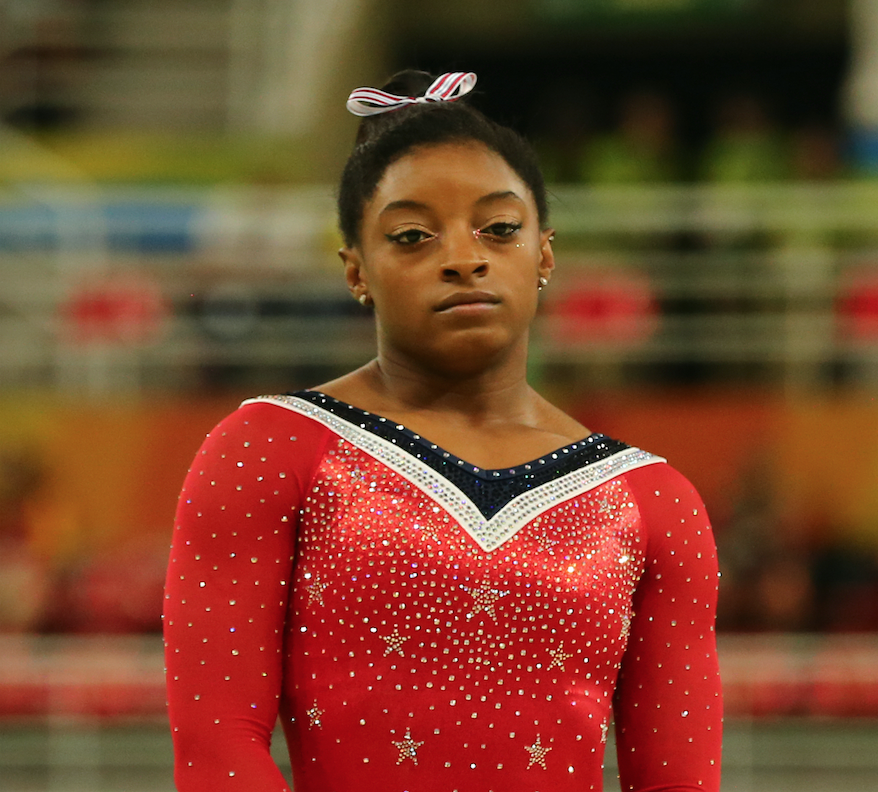By Caitlin Egan Del Raso
Like many of us over the past few weeks, I wake up in the morning and first check the news on my phone to find out the latest from the Tokyo Olympic Games. When I read about Simone Biles’ decision to withdraw from the team competition, my immediate reaction was “hmm, that’s unlike Simone Biles to flinch at the pressure of the Olympic Games.” I stayed tuned to the headlines and did further research on her decision over the next few days.
Later, I realized that it wasn’t just the pressure. The pressure was one of the various components to her making “the call” but what stuck with me was the physical aspect; enduring a case of the “twisties” and getting lost in the air during her vault. That scenario for Simone is extremely dangerous, especially because she is the only one in the world who performs certain skills. Having gone through this to a much less degree during my competitive gymnastics career, I quickly felt an immense admiration for Simone. I thought to myself “how can we teach this responsible decision-making skill to other athletes, to our children, to anyone?” To me, this rapid and mature decision-making skill that Simone displayed can allow athletes to continue to reach for their dreams at the elite level while having the capability to tap into their radar and hit the brakes for the sake of their physical and mental health when necessary.
3 Ways You Win When Kids Sports Run Your Life
We love sports for the impact they can have on our children. They teach our children teamwork, grit, resilience, strong work ethic— the list goes on. Simone has added “responsible decision making” to that list. Now children can strive to master decision-making as a skill, specifically their decision-making capability that triggers them to prioritize their wellbeing. The bonus to these life skills is that they can be learned and they are not just innate. They are learned through continuous practice and through support from family, friends, coaches, mentors, therapists, and other various resources. Mastering these skills and supporting our children as they cultivate these important life skills is well worth the investment. It helps to keep our children and athletes both physically and mentally safe while striving to reach their highest potential.
While working on my thesis for my Master of Applied Positive Psychology degree, I had the privilege of working with world-class Paralympic athletes and evaluating their passion for sport. The bottom line that came out of my research was that those athletes who prioritized their wellbeing displayed harmonious passion and made an effort to have as much balance as possible thrived more on the competition floor as opposed to those who were considered to have obsessive passion. Those with obsessive passion set their mental health and wellbeing on the back burner while they muddled through and solely focused on their sport. This obsessive type of psychological functioning can negatively impact an athlete’s performance in sport, interpersonal relationships, and general wellbeing.
As a parent, former athlete, and sports psychology consultant, I’ve spent years wrapping my head around whether or not the pressure from sport is “worth it.” While sometimes it’s not worth the sacrifices made, I believe that in most cases, the end justifies the means. That is the case in which there are not any mental or physical life-altering injuries and athletes can walk away from their sport with a sense of pride and a set life skills. I saw this in the way Simone walked out of Tuesday’s Olympic individual balance beam performance with a bronze medal around her neck.
I’ve worked in Financial Services, Banking & Capital Markets consulting, and Global Performance Management for a Big 4 accounting firm. I can wholeheartedly attest that the pressure I’ve felt in the corporate world is minimal compared to the pressure felt during my 17-year competitive gymnastics career. Yet at the same time, I’ve reached success in the corporate world due to the work ethic, grit, and resilience that I mastered through my gymnastics career. The experience is a double-edged sword and in my opinion, it’s worth toying with. Next on my list is to acquire the decision-making capability that Simone exhibited and instill it in my children.
As parents — let’s allow our kids to take the leap and cross the boundary. With the supportive environment that we can foster for our athletic children, they can continue to aim high and thrive in each chapter of their lives. They’ll carry the essential key skills from sport to day-to-day life, giving them a leg up when facing adversity. And as we hold our breath and cheer for them along the sidelines, we can thank Simone Biles and her Tokyo Olympic journey for reminding us to prepare our children to make the best decisions possible for their all-around wellbeing.
Caitlin Egan Del Raso is a Former Division 1 collegiate gymnast and sport psychology consultant.
You can reach Caitlin at: caitlinbegan@gmail.com
